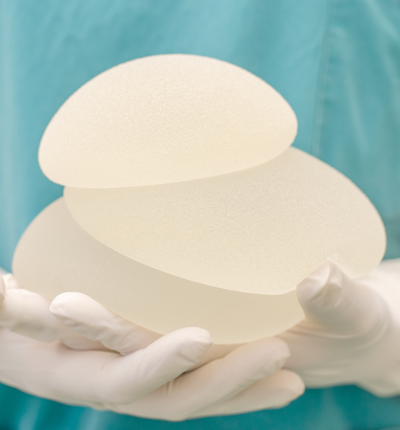
Health Canada suspends licences for Allergan's Biocell breast implants
Zahra Nanji discusses the recent announcement by Health Canada to suspend licences for Allergan's Biocell breast implants, due to concerns about links to a rare form of cancer
Posted on 04 June 2019
Health Canada has suspended the licences for Allergan’s Biocell breast implants. On 4 April 2019 Health Canada had announced that it intended to suspend Allergan’s Biocell licences unless the company could provide evidence within two weeks to support that the benefits of the implants outweighed their risks.
Health Canada received a response from Allergan on 17 April 2019 but concluded that the information provided by the manufacturer was insufficient to support ongoing licensing. At Health Canada’s request, Allergan has agreed to voluntarily recall unused Biocell devices from the Canadian market.
Health Canada found that the rate of BIA-ALCL in Canada is significantly higher in patients with macro-textured breast implants compared to other implants. They concluded that as a result, the potential risks associated with the implants, including the rare but serious risk of BIA-ALCL, outweigh their benefits.
Health Canada confirmed that it has been notified of 26 confirmed BIA-ALCL cases, 85% involve Allergan Biocell breast implants. Based on Canadian confirmed case data and devices sales data provided by the manufacturers, Health Canada estimates that the risks of BIA-ALCL are 1 in 3,565 for Allergan Biocell macro-textured breast implants and 1 in 16,703 for Mentor Siltex micro-textured breast implants.
Textured breast implants have a rough surface which keep the implant from moving around within the breast pocket created by the surgeon. The implant’s roughness, ensures that the implant adheres to the tissue around it, keeping the implants in position. In addition, it was reported in the Asthetic Plastic Surgery Journal that breast implants with a textured surface may harbour more bacteria than those with smooth surfaces .
BIA-ALCL is a serious but rare type of non-Hodgkin lymphoma (a cancer that affects the immune system) that may develop many months or years after a breast implant procedure. It is not a cancer of the breast tissue. BIA-ALCL usually presents as an accumulation of fluid (seroma) between the implant and the surrounding tissue.
France's National Agency for Medicines and Health Products (ANSM) banned macro-textured and polyurethane breast implants in April 2019, as a result of which the implants are now banned in the UK. It is important to highlight that the UK ban is not due to any positive action on the part of the UK Regulator, the Medicines and Healthcare products Regulatory Agency (MHRA).
The UK ban arises as a result of Allergan textured breast implants being removed from the market across Europe as a result of the French ban, which due to current EU regulations will affect the safety (CE) clearance of a product across Europe.
Textured breast implants are more commonly used in Europe than in the USA or Canada. As of February 2019, MHRA had received 62 reports of ALCL in patients with breast implants, of which 52 met the WHO diagnostic criteria for BIA-ALCL, whilst in Canada there were 26 diagnosed cases. Given the Canadian Authority’s response with half the number of diagnosed cases, why is the UK MHRA not taking a more proactive approach to monitoring and removal of these implants from the UK market?
What will happen in this type of situation when the UK is no longer part of Europe and subject to its Regulations? The MHRA currently bases any action it takes to suspend or ban medicines or devices according to the data it receives.
Therefore the more data it receives, the greater the odds of picking up an issue with a product. The MHRA receives data from drug companies, other regulatory authorities (such as the Food and Drug Administration in America), and by monitoring clinical trials as well as the ‘yellow card system’.
The Yellow Card system allows anyone, including the general public to report a problem or incidents with medicines, vaccines, herbal or homeopathic remedies, and medical devices to the MHRA. If there is an emergence of a pattern of negative data, the MHRA will take a closer look at the medicine or device in question.
There have been historical concerns raised that the MHRA is usually slow and ineffectual in acting due to is data sources being unreliable, an example of this was when there was the PIP breast implant scandal. The MRHA relies upon notification rather than positive monitoring and will assess allegations of non-compliance brought to their attention, rather than proactively managing a proper reporting system.
In the case of breast implants, until very recently there has been no compulsory breast implant register. Therefore there is no reliable data upon which to monitor the efficacy of breast implants and determine accurately the incidence of injury or failure. This leaves the very people that the MHRA is supposed to safeguard vulnerable to not being properly informed of an issue simply on the grounds of unreliable data.

